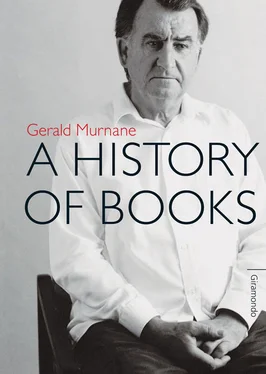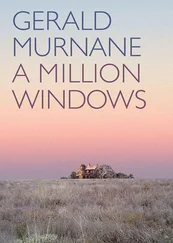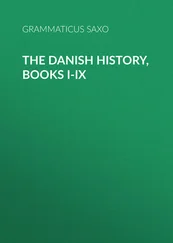For most of my childhood, I could only dare to hope that I might one day see the landscapes of heaven. I was rather more confident that I would one day glimpse some of those landscapes while I prayed with intensity or while I meditated. And, of course, I was able to imagine beforehand something of what I hoped to glimpse in the future. The landscapes of heaven were lit by a light that emanated from God Himself. Near its source, this divine light was of an almost unbearable fierceness, but in the distant zones of heaven where I was most at home, it shone serenely, although by no means unwaveringly, so that the sky above the landscapes seemed sometimes like a sky at early morning in summer in the world where these details were being imagined, and sometimes like a sky at mid-afternoon in late autumn in that same world. The details of the landscapes themselves were by no means elaborate. I was content to compose my heavenly vistas by extending further and further into the background the simple green hills, some of them with a few stylised, tufted trees on top, that I had enjoyed staring at in pictures in the earliest of my picture books; by having a pale-blue stream wind between some of the hills; by situating on this or that hillside a farmhouse or a few cattle or horses, and behind just one of the furthest hills the church steeple or the clock tower of a peaceful village.
The person who imagined the landscapes described above could hardly have been satisfied to contemplate mere details designed for infants, nor was he. My looking at the landscapes of the outer zones of heaven was always accompanied by the reassuring knowledge that heaven extended endlessly. My looking over a vista of green hills was only an introduction to the place that contained all places, even all unimaginable places. Soon, the simple green countryside would give way to unknown landscapes. And even more encouraging than the knowledge just described was a certain feeling that I often felt during my surveys of the little I had so far imagined.
The feeling mentioned above was a feeling of being accompanied by and watched over by not so much a person as a presence. This presence was unquestionably a female presence. Sometimes I imagined that the presence and I were no more than children who had agreed to be girlfriend and boyfriend. Sometimes I imagined, though I was still a child myself, that the presence and I were adults and were wife and husband. Sometimes I imagined the face of the presence, sometimes even the clothes that the presence wore or the few words that the presence spoke to me. Mostly, I was content to feel the presence of the presence: to feel as though she and I were sharers in a pact or understanding that bound us together intimately but could not have been expressed in words. Although I would never during my childhood have asked such a question of myself, it occurs to me now to ask of the fictional child who is the chief character of this part of this piece of fiction the question what seemed to him the most desirable of the likely pleasures that he might enjoy in his imagined heaven. It is, of course, easy to ask a question of a fictional character but unheard of to receive an answer from such a character. Even so, I believe I should report here my belief that if the chief character mentioned above could be imagined as being able to answer the question mentioned above, then he could be imagined as answering that he most desired to discover, in a remote district of the landscapes mentioned previously, a place in which he and the presence that accompanied him always could settle.
If this piece of fiction were a more conventional narrative, the reader might be told at this point that the parenthetical passage that began in the fifteenth paragraph before this paragraph has now come to an end and that I, the narrator, am about to continue narrating the events of the Sunday when the chief character of this piece of fiction was walking with his father after having seen an hour beforehand at the Farm a pale and plumpish young man who was the first of the settlers at Outlands that the chief character had seen. Instead, the reader is hereby assured that nothing of significance took place during the rest of the Sunday just mentioned, and the same reader is further assured that the next paragraph and many subsequent paragraphs will contain not a narrative of certain events but a summary of the significance of those events and of much more.
I asked few questions about the settlement of Outlands while I was at the Farm, but I listened whenever a resident of the Farm or a visitor from Outlands said anything about the settlement in the far north-east of the state. Even years later, I was still able to learn details from one or another of my father’s relatives.
The writer of the feature article mentioned much earlier seemed to have believed that the settlement in south-eastern Victoria was the oldest or even the only such settlement of its kind. That settlement was founded in the year when I was staying at the Farm, by which time Outlands had been in existence for at least one year. I have heard of another such settlement that was founded in the late 1940s. These settlements were hardly rivals, but I suspect that the settlers in the south-east, many of whose faces I had seen images of in the illustration mentioned earlier, might have been called mostly working-class persons, whereas the Outlanders might have been called mostly middleclass persons. I suspect further that the Outlanders would have wanted to be called a group of Catholic intellectuals. My father called them long-hairs, in accordance with his belief that men who had been to university wore their hair longer than did other men, had less common sense, and were less able with their hands.
On the day after I had first met an Outlander and had learned something about the settlement of Outlands, I walked far out into the long grass between the neglected fruit trees at the Farm and founded a settlement of my own. I thought of my settlement as having the same name as the settlement that had inspired me, but for the sake of convenience I shall call my own settlement hereafter Grasslands.
The founder of the settlement of Grasslands had never met any other child or adult who was less skilled than he was at representing things by drawing or painting or modelling. Other children had often laughed, and even teachers had smiled, at the distorted pictures and lumpish objects that the future founder of Grasslands had produced in art and craft classes. The same children and teachers praised the essays and stories that the future founder wrote in English composition classes. On the day when he prepared to found his settlement, the founder might have been expected to call on his skills as a writer and so to write a detailed description of the settlement and the settlers. But the founder knew he had much more to fear if his writing were discovered by one of the adults at the Farm than if one of those adults stumbled on his model in the grass. The founder knew that his writing would report what the settlers saw inwardly as they lived their lives at the settlement and so, by implication, what he, the writer, had seen inwardly while he wrote.
And so the settlement of Grasslands was founded not as the subject of a piece of writing but as a model or toy. And because the founder was so little skilled with his hands, he was unable to make from the excellent clay of the northern suburbs of Melbourne any sort of building other than a rough cube or trapezoid that later cracked apart in the sun. The animals in the paddocks at the settlement were pebbles. The settlers themselves were forked twigs found among the branches of the orchard trees.
I never learned how many persons had settled at Outlands. While I stayed at the Farm I saw two young men and three young women who might have been newly recruited to Outlands or, perhaps, returning briefly to Melbourne to settle some private business or who might even have been on their way back to the secular world after having decided to leave Outlands. The young men seemed thoughtful; the young women seemed more ready to smile or joke, but I noted that they were all what my father called plain Janes. All of these young persons were unattached. I never heard of any married couples at Outlands, although I cannot believe couples would have been prevented from joining the settlement.
Читать дальше












